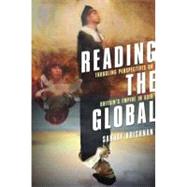Reading the Global : Troubling Perspectives on Britain's Empire in Asia
, by Krishnan, Sanjay- ISBN: 9780231140706 | 0231140703
- Cover: Hardcover
- Copyright: 6/1/2007
The global is an instituted perspective, not just an empirical process. Adopted initially by the British in order to make sense of their polyglot territorial empire, the global perspective served to make heterogeneous spaces and nonwhite subjects "legible," and in effect producedthe regions it sought merely to describe. The global was the dominant perspective from which the world was produced for representation and control. It also set the terms within which subjectivity and history came to be imagined by colonizers and modern anticolonial nationalists.In this book, Sanjay Krishnan demonstrates how ideas of the global took root in eighteenth- and nineteenth-century descriptions of Southeast Asia. Krishnan turns to the works of Adam Smith, Thomas De Quincey, Abdullah bin Abdul Kadir, and Joseph Conrad, four authors who discuss the Malay Archipelago during the rise and consolidation of the British Empire. These works offer some of the most explicit and sophisticated discussions of the world as a single, interconnected entity, inducting their readers into comprehensive and objective descriptions of the world.The perspective organizing these authors' conception of the global-the frame or code through which the world came into view-is indebted to the material and discursive possibilities set in motion by European conquest. The global, therefore, is not just a peculiar mode of thematization; it is aligned to a conception of historical development unique to European colonial capitalism. Krishnan troubles this dominant perspective. Drawing on the poststructuralist and postcolonial approaches of Jacques Derrida, Michel Foucault, and Gayatri Chakravorty Spivak, and challenging the recent historiography of empire and economic histories of globalization, he elaborates a bold new approach to the humanities in the age of globalization.






